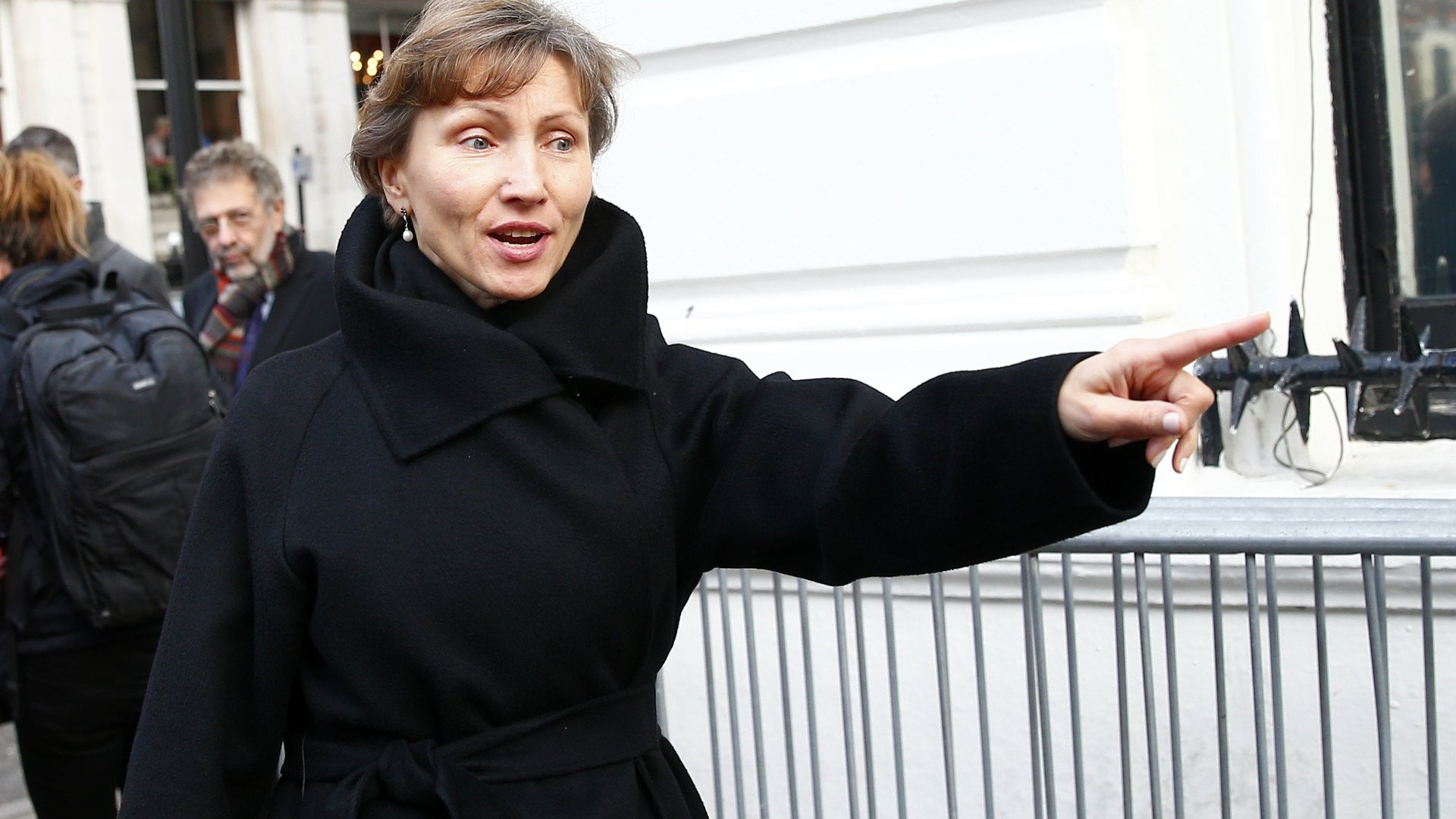The finale to the most sensational murder of 2006 is playing out in a London courtroom
Years before Russian president Vladimir Putin was pilloried by the West for invading Ukraine, he was accused of complicity in the most sensational story of 2006—the hideous death of a KGB defector named Alexander Litvinenko in London.


Years before Russian president Vladimir Putin was pilloried by the West for invading Ukraine, he was accused of complicity in the most sensational story of 2006—the hideous death of a KGB defector named Alexander Litvinenko in London.
A few hours after sipping tea with two former KGB colleagues at a Mayfair hotel, Litvinenko succumbed to violent vomiting. Three weeks later he was dead—the victim, doctors said, of a fatal dose of a radioactive isotope called polonium 210. The two men with whom he passed the time on Nov. 1, 2006—Andrei Lugovoi, now a member of the Russian Duma, and Dmitry Kovtun—are wanted by London police in the case. But the most mentioned visage behind the apparent hit has always been Putin, accused directly by Litvinenko from his death bed.
The case—shocking not only because of the form of murder, but that it was brazenly committed in the heart of a major western capital—has been playing out in a hearing in a London courtroom.
Britain had previously blocked a public inquiry, citing national security issues, which probably meant the role of UK spy agencies in investigating the case, Russian security expert Mark Galeotti told Quartz. New political developments appear to have played a role in the decision to allow Marina Litvinenko, the victim’s widow (pictured above), her day in court, especially public revulsion over Putin’s assault on Ukraine, and in particular the July downing of Malaysian Airlines Flight 17 over Ukraine soil, which killed 229 people.
A few people with contrary minds, in addition to pro-Kremlin elements, say that someone else may have done in Litvinenko—especially given his lifelong intersection with dodgy elements, including criminals and other current and former spies. Lugovoi himself blames British intelligence, for whom Litvinenko was a source.
Here’s what we’ve learned from the first two days of testimony:
Searching for a murderous cook
We have heard a witness describing Kovtun asking around in Hamburg for recommendations for a cook in London who could be trusted to slip a “very expensive poison” to a Russian traitor: Litvinenko. Investigators picked up a conversation between this cook and a man named Dmitry using a cell phone registered to Lugovoi.
If at first you don’t succeed …
Also interesting has been the disclosure that Litvinenko was allegedly poisoned not just once, but twice. The initial posisoning was allegedly also done by Lugovoi and Kovtun, who met with Litvinenko in October 2006. According to testimony, their initial attempt made the victim ill but not fatally so.
A radioactive autopsy
In testimony yesterday, a coroner said that Litvinenko’s autopsy was probably “the most dangerous ever undertaken in the western world” because of the level of radioactivity in his body.
Was Putin involved?
Several weeks of hearings are still to come. But after all that, the inquiry is unlikely to resolve whether Putin was involved. So most professional observers of Russia—including me, after writing a book examining the Litvinenko case among other instances of high-profile murder in Russia—have paid attention to the circumstantial evidence:
The murder weapon
The polonium 210 was almost certainly from Russia, which at the time of the murder produced some 98% of the world’s supply of the isotope. A nuclear reactor is required to produce polonium 210, and it was under a strong regime of control—not foolproof, to be sure, but also reasonably complicated to obtain, either from Russia or purchasers abroad.
Who signed off?
When it comes to the business of murder in Russia, no one would proceed with an assassination on this scale—one certain to ignite an international diplomatic crisis—absent knowledge and probably approval at very senior levels in government, experts largely agree. In short, if one were ordering a hit of this nature, one would want to feel assured that Putin was on side.